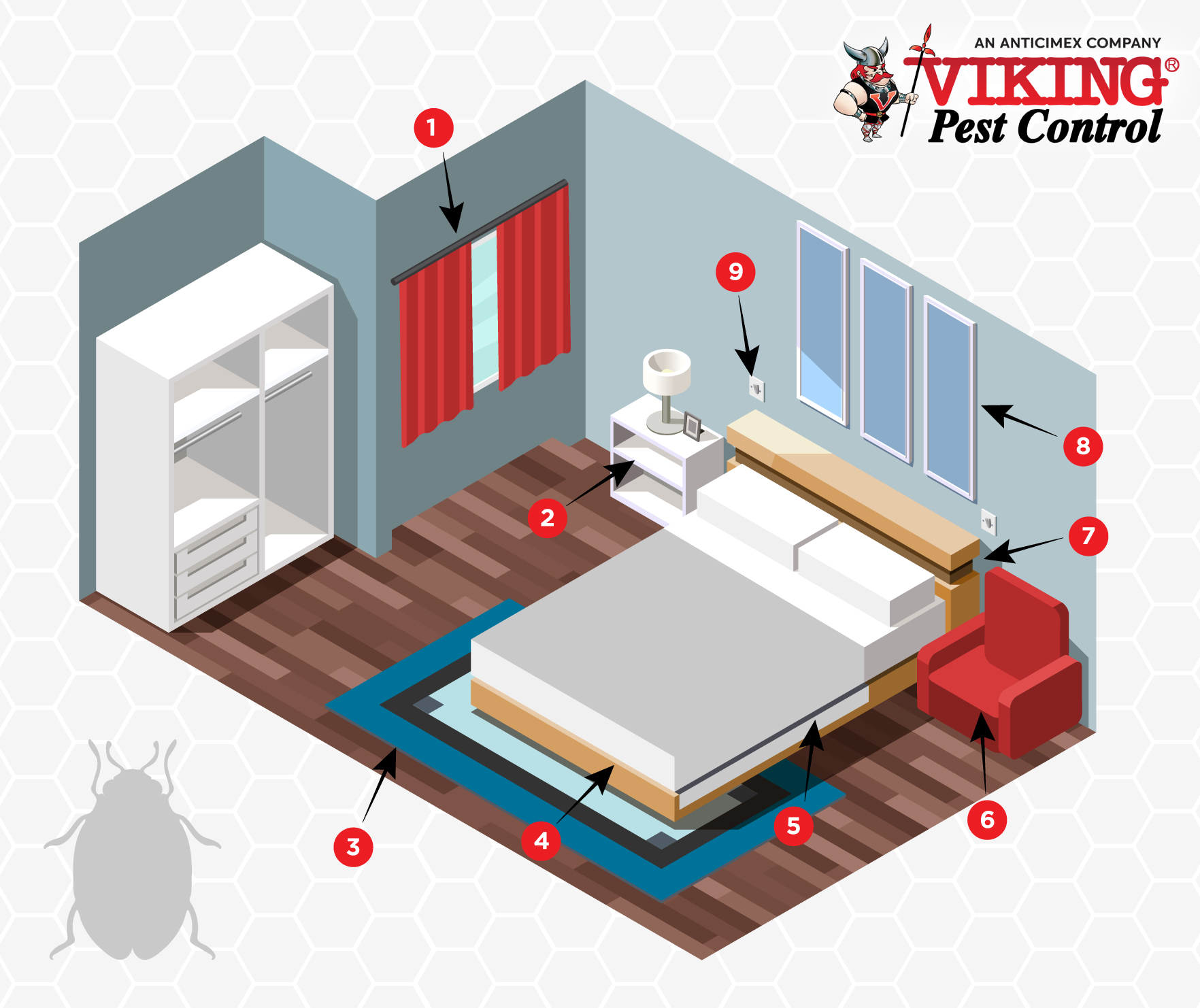King-size Bed Pest Pest Control Expert Cincinnati: Pro Bug Solutions
Wiki Article
Kinds of Parasite Control: Which Method Is Right for Your Infestation?
When faced with a bug problem, the option of an appropriate method for insect control is vital in properly managing the situation. From chemical treatments to biological solutions, there exists a series of techniques that can be utilized to attend to different types of insects. Each technique includes its very own collection of benefits and considerations, making the decision-making process a nuanced one. Understanding the nuances of each approach and evaluating their compatibility with the specific pest infestation handy is crucial for attaining lasting success in bug administration. By checking out the different kinds of pest control approaches readily available, people can make educated decisions customized to their special scenarios, ensuring a much more reliable and sustainable outcome in pest obliteration.Chemical Parasite Control
Chemical insect control entails the use of artificial or naturally acquired chemicals to manage and get rid of pest populations properly. This method is generally utilized in farming, forestry, and household settings to battle a vast array of pests, including bugs, weeds, and rats. Using chemical pesticides can give fast and targeted services to pest problems, making it a popular choice for lots of people and businesses.One of the crucial benefits of chemical pest control is its capability to quickly remove pests, decreasing the danger of damages to plants, residential or commercial property, and human health and wellness. By utilizing specific chemicals that target particular insects, this technique can properly regulate infestations while minimizing harm to useful microorganisms and the setting when applied appropriately.
Nevertheless, using chemical bug control additionally elevates problems concerning possible damaging results on non-target varieties, water resources, and human wellness. It is critical to adhere to safety and security standards, use chemicals properly, and think about alternate insect control techniques to reduce these risks and ensure sustainable parasite monitoring techniques.
Organic Parasite Control
Biological pest control, likewise called biocontrol, utilizes living organisms to minimize and handle insect populations normally. This technique utilizes the power of nature to control parasites without the demand for synthetic chemicals. Biocontrol can involve the intro of all-natural enemies of the insect varieties, such as parasites, pathogens, or killers, to reduce insect populaces. By utilizing the pest's all-natural predators or virus, biological parasite control provides a lasting and environmentally pleasant solution to pest administration.
Mechanical Insect Control
Using physical and hands-on methods to take care of parasite populaces, mechanical bug control provides an alternate method that does not rely on making use of living microorganisms or artificial chemicals. This technique involves making use of obstacles, traps, or other tools to literally discourage or eliminate pests. By obstructing bug entry factors or establishing up traps to capture them, mechanical bug control can efficiently decrease problems without presenting chemicals into the setting.One typical example of mechanical parasite control is the use of mesh screens on try this out doors and windows to avoid bugs from entering structures. This easy yet effective technique serves as a physical obstacle, keeping parasites out while enabling for proper air flow. Additionally, tools like mousetraps, fly swatters, and ultrasonic repellents fall under the mechanical bug control category.
While mechanical parasite control techniques can be labor-intensive and call for routine surveillance and maintenance, they supply a ecologically friendly and sustainable service for taking care of insect problems. By combining various mechanical strategies, homeowner can produce a thorough insect control method that minimizes reliance on chemical pesticides.
Physical Parasite Control

Some common physical pest control approaches consist of making use of barriers such as screens or webs to stop pest access, catches to capture and remove parasites, and hand-picking to literally eliminate pests from plants or frameworks. Furthermore, techniques like warmth therapies can Your Domain Name be used to regulate bugs like bed insects by raising the temperature level to levels that are dangerous to the bugs.
Physical pest control is specifically beneficial in integrated parasite administration (IPM) strategies, where numerous insect control approaches are integrated for effective bug management while decreasing the use of chemicals. By making use of physical insect control techniques, people can effectively attend to pest problems with minimal ecological impact.
Integrated Bug Management
When carrying out physical pest control techniques as component of insect monitoring strategies, Integrated Bug Monitoring (IPM) becomes a thorough method that leverages numerous techniques to efficiently regulate pest populations. IPM focuses on long-lasting avoidance of pests with a mix of organic, cultural, physical, and chemical tools customized to details pest problems. By incorporating numerous control tactics, IPM aims to lessen the threats connected with insects while additionally reducing reliance on chemical solutions.One secret element of IPM is the focus on surveillance and assessing pest populations to identify the most proper control approaches. This aggressive approach enables for early treatment and targeted approaches, leading to much more effective insect administration. Furthermore, IPM advertises ecologically pleasant methods by focusing on non-chemical control techniques and just utilizing pesticides as a last resource.
Conclusion

By using the insect's all-natural killers or virus, biological bug control offers a lasting and eco friendly solution to pest administration. - Kings pest control Cincinnati Ohio
Using hand-operated and physical approaches to take care of pest populations, mechanical pest control offers an alternative method that does not depend on the use of living organisms or synthetic chemicals.An effective approach site web to managing parasite populaces without depending on chemical or organic techniques includes the use of physical insect control techniques.When executing physical insect control methods as part of parasite monitoring approaches, Integrated Parasite Administration (IPM) emerges as an extensive method that leverages various strategies to properly regulate pest populations. Chemical pest control involves the usage of pesticides, biological parasite control makes use of natural predators, mechanical parasite control includes physical barriers, physical pest control consists of trapping or removing parasites, and integrated parasite monitoring incorporates several methods for an all natural technique to pest control.
Report this wiki page